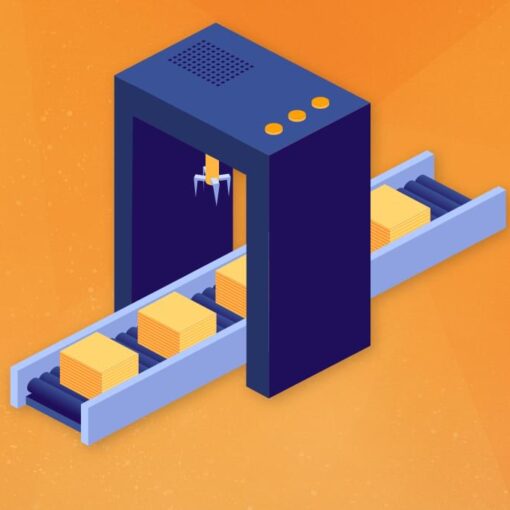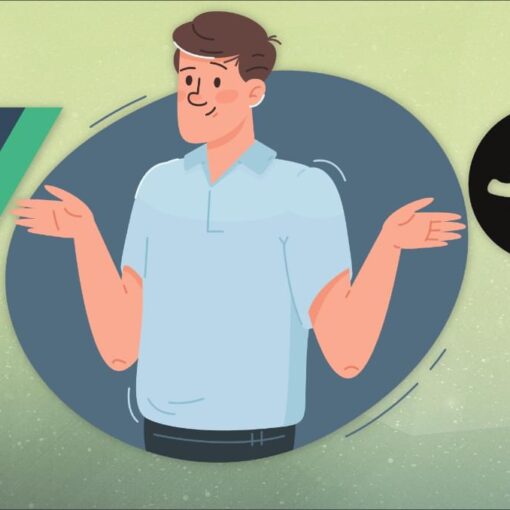advertisement
One of the most difficult things about marketing is actually a two-fold problem: How do you get the word out, and once it’s out, how do you get people to give a flip about you? There is no easy answer to this issue, but there are ways to make solving it easier, and the recently launched Prime 8 Art League has the right idea.
Here’s how it works. Billing itself as a “different kind of gallery looking for a different kind of artist,” what that really means is, in essence, if you’re an artist looking for a new opportunity to get seen and also get your work out there, Prime 8 is an entity to align yourself with. The league itself is an offshoot of “ecommerce solutions provider” Gorilla Group — who has worked with clients like Movado and Kohler — which means Prime 8 wants to find artists to create work for its space, and if they tap you to make stuff, you’ll be featured at galleries and even paid for the privilege. Senior Designer and Head of Monkey Business Andrew Vitale is the brains behind all this, and in our own backyard, he’s seeking out big names like Kirby Kerr of Rotofugi to gain attention. But that isn’t the only name Prime 8 is looking for.
Prime 8 has also announced an open call for artists to be displayed in its gallery. So, in other words — Prime 8 has figured out how to turn its key demographic also into its key source of advertising. I gave Andrew a call to discuss how he stumbled upon this idea and how others can follow suit. (I could’ve said “monkey suit” but there’s enough ape-related puns in this intro already, no?)
For readers who aren’t familiar, can you get them up to speed on Gorilla and the Prime 8 Art League?
Andrew Vitale: The leadership here at Gorilla made a pretty smart decision to put their marketing dollars behind this initiative. I think there’s definitely something to talk about with Gorilla, because they’re footing the bill at the end of the day. So, they were smart enough form a marketing perspective to do something a little unconventional and cater towards the new design capabilities that we’re offering. One of the ideas we had was to start this art league, which is sort of two-fold.
It will definitely position us in the community as one of the voices and one of the key players that are active in the art community and from a client perspective it will position us as a voice in the space and hopefully give us a competitive advantage. This is just something to add a little value to clients who come on board so they know they’re not just getting designers, they’re actually getting active artists in the community, and I guess in theory, and it’s starting to work, because we have our hand on the pulse of the fine art community, that it’s going to ground some of our design work. There’s always that stigma behind designers versus artists, right? So, again, this is kind of a subtext to allow us to blend those two worlds.
How long have you been around?
Andrew Vitale: Gorilla as a whole has been around since 1994, and they originally produced CD-ROMs and they also had their hand in building proprietary e-commerce back end. We now, since 2008 have a new partnership with Magento, and they are pretty hot e-commerce platform. We do almost, I would say, 85 to 90 percent of our business is Magento projects. A few years ago they made the decision to actually offer design as a serious service. So, the design team started I think right around that time when Magento was in our business mind. We started to figure out that design is a little bit easier to sell than development. We started to pursue different clients because of that reason, our business started to grow, and here we are today.
How have you guys been marketing this, and who do you think that technique would also apply to?
Andrew Vitale: This initiative was built from the ground up, and moving forward we knew it was important to at the very least sync up with some well known curators in the arts scene and/or curator personality types in that scene. So we went out and sought Kirby Kerr from Rotofugi who owns and operates Rotofugi Toy Store And Gallery in Wicker Park. We also sought after Tristan Hummel, who’s part of the Chicago Loop Alliance. And then Philip Tadros, who owns and operates Doejo, which is another creator shop here in Chicago. There are strategic curators we wanted to bring on so we could ground what we’re doing and bring in some validation, so if you are an artist in the community you can see those names and go, “Ah, okay. There’s definitely some merit to what they’re doing there.” Definitely if you can sync up with key curators, that will definitely help.
What if you don’t know anything about that area?
Andrew Vitale: That’s a good question. If you’re not really tapped in, and I wouldn’t consider myself tapped into that scene. Probably now more because we’ve been doing this. But definitely go and show your face at openings. Those are called First Fridays. Traditionally for the gallery district, it’s just walk-in, so they have openings, every first Friday of the month. And you should just reach out to artists that you like. Artists are pretty accessible these days, whether it’s just finding them via email from their personal portfolio site or going to a gallery site that you like and just reaching out via email — that’s really how we got started out doing this.
You talk about how you got started doing this, but what are some of your goals for this either for 2012 or further down the road?
Andrew Vitale: The goal is to obviously run a successful event. We’re going to do two each year, and we’re hoping to get at least 50 submissions for this first iteration. As we do the next event, certainly to get more submissions, hopefully the word will continue to get out there, and so the other goal is to have valuable guest curators come on each time that maybe get a little more important or exposure in that field. So artists who are well known in addition to curators who are well known.
We’re heavy in the promotional part of this initiative, so putting marketing dollars behind something is great. But the hard part is actually getting the word out. We’ve been really active about dropping press releases and using the power of our current cog work of our company that is Gorilla to take advantage of that. That’s not going to be the case for all entrepreneurs, but I think the underlying thing is to take advantage of the resources you have and leverage all the current process you have. If that’s the case you find yourself in? Don’t try to reinvent the wheel, use what you already have and hit the ground as hard as you can.
 David Wolinsky is a freelance writer and a lifelong Chicagoan. In addition to currently serving as an interviewer-writer for Adult Swim, he’s also a columnist for EGM. He was the Chicago city editor for The Onion A.V. Club where he provided in-depth daily coverage of this city’s bustling arts/entertainment scene for half a decade. When not playing video games for work he’s thinking of dashing out to Chicago Diner, Pizano’s, or Yummy Yummy. His first career aspirations were to be a game-show host.
David Wolinsky is a freelance writer and a lifelong Chicagoan. In addition to currently serving as an interviewer-writer for Adult Swim, he’s also a columnist for EGM. He was the Chicago city editor for The Onion A.V. Club where he provided in-depth daily coverage of this city’s bustling arts/entertainment scene for half a decade. When not playing video games for work he’s thinking of dashing out to Chicago Diner, Pizano’s, or Yummy Yummy. His first career aspirations were to be a game-show host.


